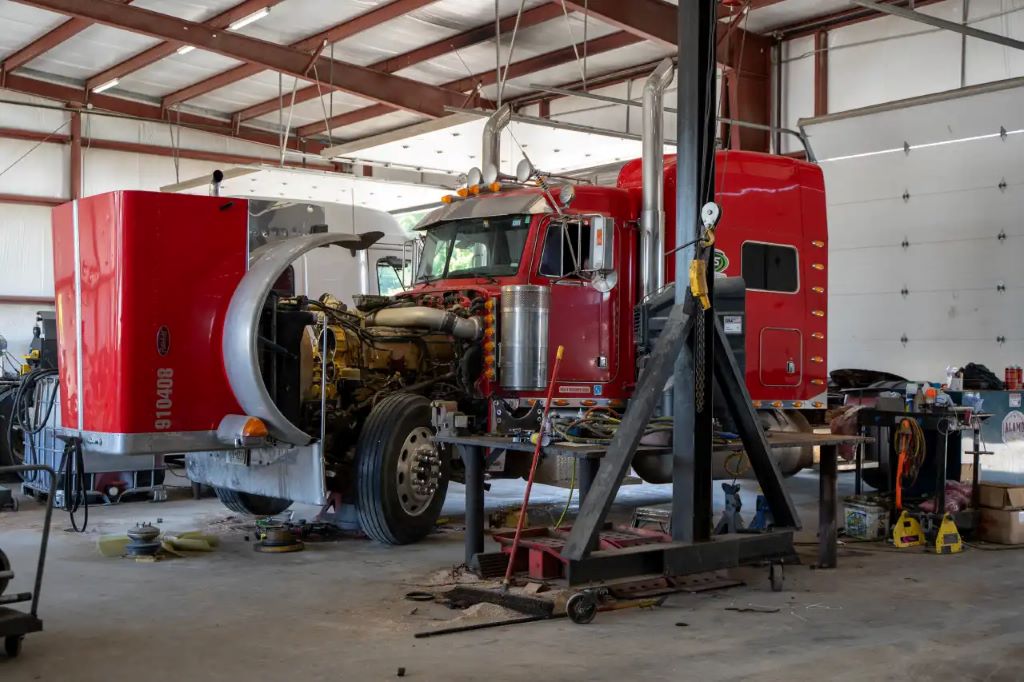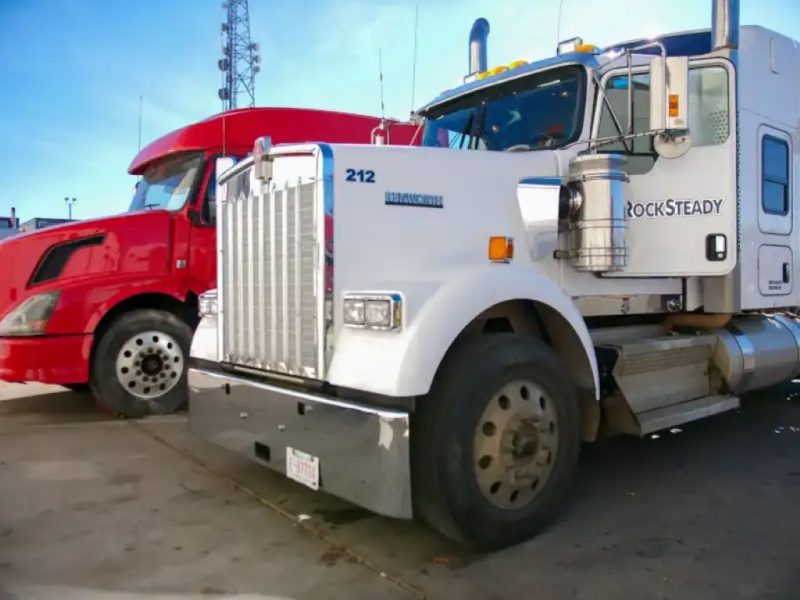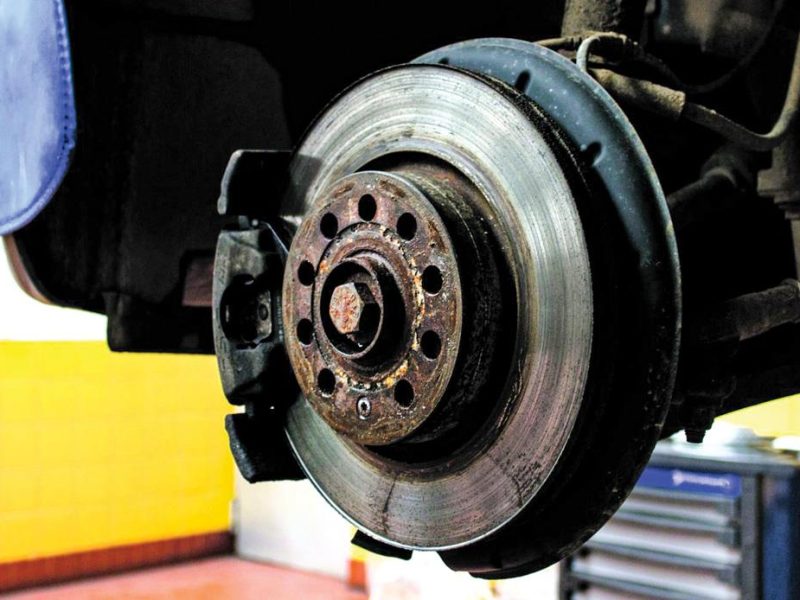Diesel engines are the workhorses of the commercial trucking world. Found in vehicles ranging from box trucks and school buses to mighty 18-wheelers, these engines are built for hauling heavy loads and logging long miles. However, like any complex machine, they require regular maintenance and occasional repairs. This is where the world of medium and heavy-duty diesel repair comes into play.
What Qualifies as “Medium” and “Heavy” Duty?
In the world of trucks, classifications are key:
- Medium Duty: These trucks fall into Classes 4-6. Think delivery trucks, larger work vans, or tow trucks. Their Gross Vehicle Weight Ratings (GVWR) range from 14,001 to 26,000 pounds.
- Heavy Duty: True powerhouses, these are Class 7-8 trucks. Semi-trucks, dump trucks, and large buses are in this category. GVWR starts at 26,001 pounds and goes up from there.
Common Issues in Medium and Heavy-Duty Diesel Engines
While renowned for their durability, even powerful diesel engines experience wear and tear. Some common issues include:
- Fuel System Troubles: Malfunctioning injectors, clogged fuel filters, and fuel pump failures can lead to poor performance, rough starts, and even stalling.
- Turbocharger Problems: Turbochargers boost power, but they also face issues like leaks, damaged bearings, or faulty wastegates. This can lead to a loss of power and increased exhaust smoke.
- EGR and Emissions Issues: Exhaust Gas Recirculation (EGR) systems are designed for emissions control, but they sometimes clog or malfunction. Issues with other emissions gear like the Diesel Particulate Filter (DPF) are also common.
- Electrical Gremlins: Heavy-duty trucks utilize complex electrical systems. Wiring problems, sensor failures, and alternator issues can all lead to unexpected breakdowns.
- Overheating: Cooling system leaks, failed thermostats, or worn water pumps can make an engine run too hot. Overheating can be catastrophic for any engine, especially diesels.

Specialized Expertise: Why Choose a Dedicated Diesel Mechanic
Medium and heavy-duty diesel repair requires specialized knowledge and tools. Unlike gasoline engines, diesels operate on a unique compression-ignition principle and have components designed for tremendous pressure. Here’s why a dedicated diesel mechanic is crucial:
- Diagnostic Tools: Diesel engines often rely on sophisticated computer systems for monitoring and control. Specialized diagnostic software is essential to identify problems quickly and accurately.
- Parts Knowledge: Diesel engines utilize robust, heavy-duty components. Knowing the right parts suppliers and understanding compatibility is key for successful repairs.
- Experience Matters: Mechanics who specialize in diesel engines have hands-on experience diagnosing and repairing the unique issues these powerhouses face.
Preventive Maintenance: The Key to Long Engine Life
The best way to minimize costly repairs is with a robust preventive maintenance program. This includes:
- Oil and Filter Changes: Diesel engines often require more frequent oil changes than their gasoline counterparts. Using the manufacturer’s recommended oil and filters is vital.
- Fluid Checks and Top-Ups: Coolant, brake fluid, transmission fluid, and other essential fluids need regular monitoring and replacement.
- Inspections: A trained mechanic can spot worn belts, leaky hoses, or other potential problems before they cause major breakdowns on the road.
- Following Manufacturer Schedules: All truck manufacturers have specific maintenance schedules that include items beyond just oil changes.
What to Expect: The Repair Process
If you do need medium or heavy-duty diesel repair, here’s what you can generally expect:
- Diagnostics: The first step is pinpointing the exact problem, often involving computerized diagnostic tools and physical inspection.
- Estimate and Approval: A reputable shop will provide a detailed estimate of repair costs and get your approval before proceeding.
- Repair: This might involve parts replacement, system overhauls, or a combination depending on the problem.
- Testing: Once repairs are complete, the truck should be thoroughly road-tested to ensure everything is back to proper working order.
Finding the Right Diesel Repair Shop
Not all mechanics are created equal, especially in the diesel world. Look for:
- Certifications: ASE certifications in diesel repair are a good sign of knowledge and skill.
- Specialization: Look for shops advertising medium/heavy-duty diesel expertise.
- Reputation: Word of mouth, online reviews, and testimonials can help you gauge a shop’s reputation.
Don’t let diesel repair intimidate you! With a little knowledge, proactive maintenance, and a qualified shop on your side, you can keep your medium or heavy-duty truck performing its best for countless miles ahead.
Mobile Repair Services: An Option for Truck Owners
Traditional repair shops aren’t the only solution. Mobile diesel repair specialists have become increasingly popular. Here’s why they might be a good fit for you:
- Convenience: Mobile mechanics come to you, which can be a huge time-saver, especially for businesses or fleets that rely on their trucks for daily operations.
- Roadside Assistance: Many mobile diesel mechanics offer emergency roadside assistance, getting you back on the road fast if a breakdown occurs.
- Potential Cost Savings: In some cases, mobile services may have lower overhead than brick-and-mortar shops, potentially translating into savings.
DIY Diesel Repair: Is It Right For You?
Some experienced gearheads tackle their own diesel repairs. However, it’s important to be realistic:
- Complexity: Even basic tasks on diesel engines often require specialized tools and a deeper understanding of their unique systems.
- Risks: Incorrect repairs can cause further damage or create safety hazards, especially on heavy-duty trucks.
- Investment: Quality diesel tools and diagnostic equipment can get expensive.
If you do pursue DIY diesel maintenance, it’s best to start with simple tasks like oil changes or filter swaps and then work your way up. Invest in good manuals and online resources specifically for your truck’s make and model.
How To Change Semi Truck Wheel Seals: A Step-by-Step DIY Guide
The Importance of Quality Parts
When it comes to medium and heavy-duty diesel repair, never compromise on part quality. Here’s why:
- Longevity: OEM (Original Equipment Manufacturer) or high-grade aftermarket parts are designed to withstand the rigors of heavy-duty use. Cheaper parts often have shorter lifespans, leading to repeat repairs.
- Compatibility: Diesel engines have fine tolerances and require specific parts to work correctly. The wrong part could cause performance problems or damage other engine components.
- Warranty: Quality parts typically come with warranties, offering peace of mind in case of defects.
The Future of Medium and Heavy-Duty Diesel
While diesel engines have a solid reputation, the future will see changes. Here’s a glimpse into what’s on the horizon:
- Electrification: Electric semi-trucks and even some medium-duty electric options are in development While it may take time for wide adoption, this is definitely the future.
- Advanced Emissions Systems: Diesel engines are becoming cleaner and more efficient, with ever-evolving technology to reduce smog and harmful emissions.
- Alternative Fuels: Biodiesel and other renewable fuel options are gaining ground, offering potential environmental benefits for existing diesel engines.
Key Takeaways
The world of medium and heavy-duty diesel repair might seem complex, but knowing some basics goes a long way. Remember these points:
- Diesel engines bring power and longevity, but require specialized maintenance and repair knowledge.
- Preventive maintenance is the best way to avoid expensive breakdowns and extend your truck’s life.
- Choose a qualified diesel mechanic with the right tools, experience, and commitment to quality parts.
- Explore options like mobile repair services for added convenience.
- Stay aware of ongoing changes and the future of diesel power in the trucking industry.
Let me know if you’d like additions or specific areas explored further!






